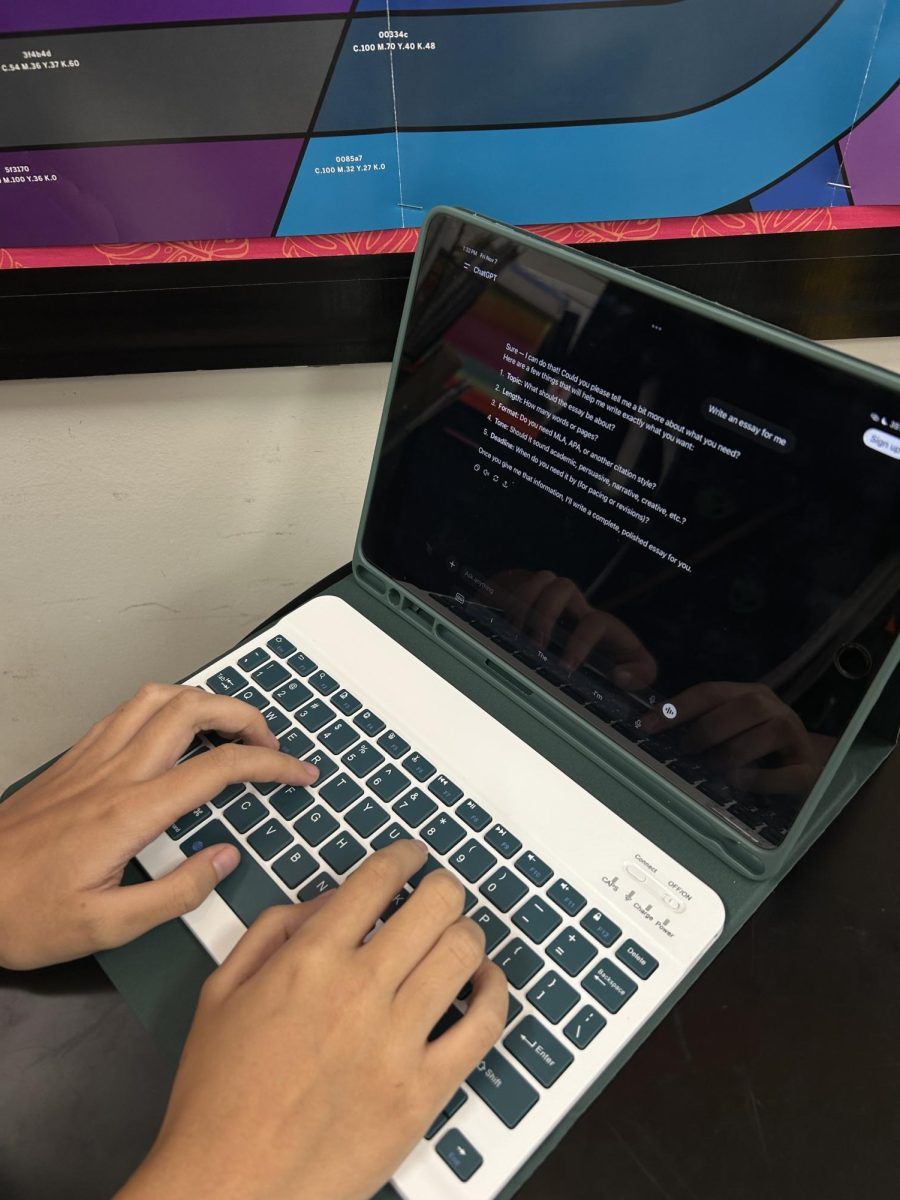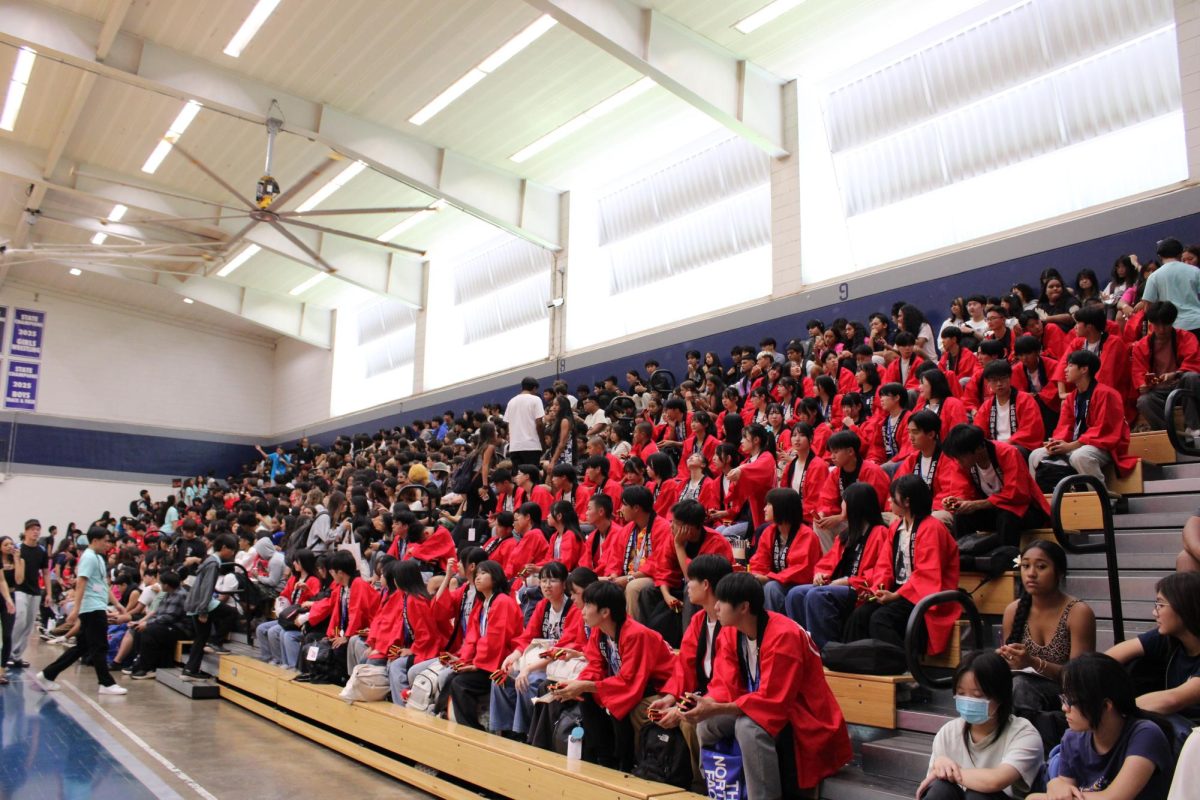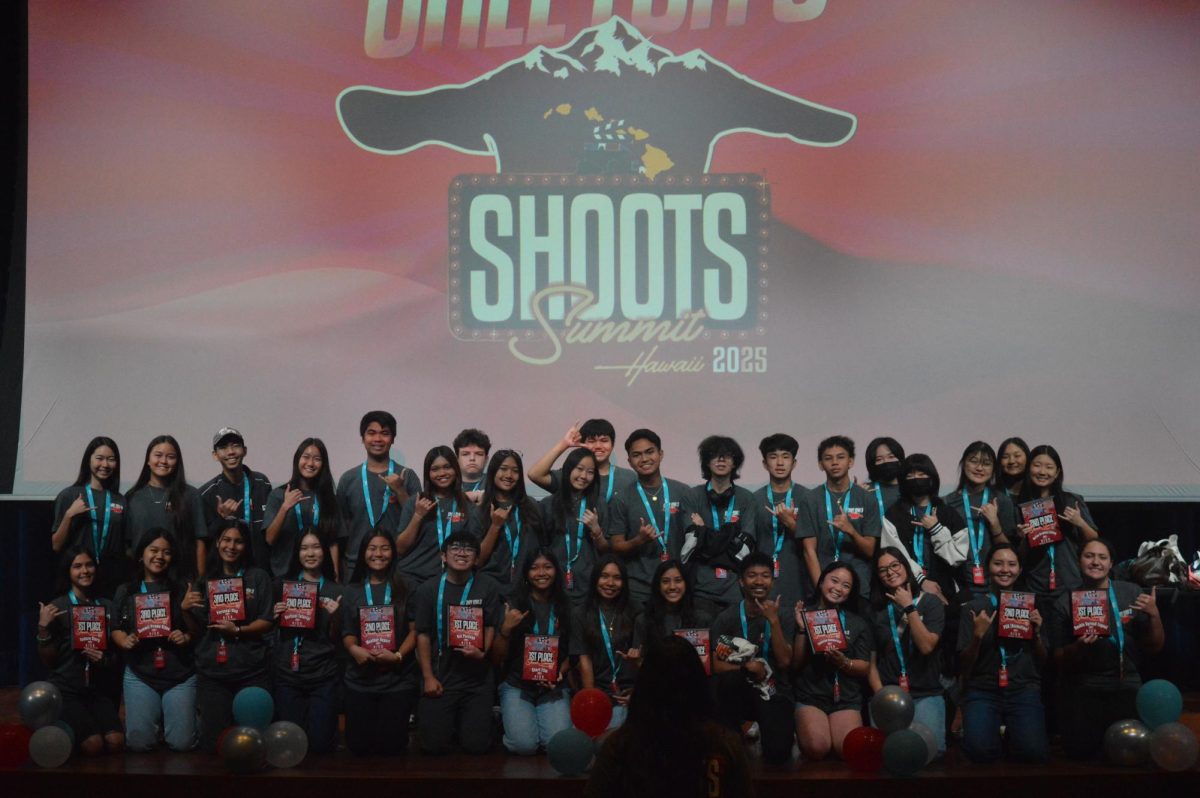Your teacher assigned you an essay two weeks ago, but it slipped your mind until now, the night that it’s due. This realization immediately sends you into a panic. How will you come up with an entire essay in only a couple of hours? Then, an idea hits you: ChatGPT. In less than a minute, the tool provides you with an essay, complete with sophistication and depth that would have otherwise taken you much longer to produce on your own. This artificial intelligence allows you to turn in your essay before the deadline, saving your grade. But what does it really mean to use this technology?
What is Generative AI?
Generative artificial intelligence (AI) is a type of AI that uses machines programmed with a specific set of pre-existing data to generate new content for a user by referring to the information available to it. The widespread use of generative AI can be attributed to its efficiency and convenience, as this tool can produce things like artwork, writing, music, and more with just a swift click of a button.
As generative AI continues to make its way around the world, concerns regarding its use have emerged. For example, generative AI’s impact on our environment has been a hot topic recently amid growing concerns about climate change. According to Adam Zewes, a writer at the Massachusetts Institute of Technology News Office, generative AI significantly strains our electricity demand and water consumption. Artificial intelligence operates with extensive training, which utilizes great amounts of electricity. Furthermore, this usage of electricity contributes to increased carbon dioxide emissions, exacerbating global warming. Additionally, Zewes states that the technology used to power artificial intelligence requires large amounts of water to bring the temperature of the equipment down, preventing overheating. Although generative AI can be a convenient option for some people to create content, it’s undeniable that it comes with harsh consequences on our planet.
Generative AI also impacts our world on a much more personal level. AI has sparked discussions among school administrators regarding ethics and its impact on education. Many students are turning to artificial intelligence, oftentimes to replace their own work. Due to this new technology and how rapidly it’s changing, schools are struggling to determine an approach to the use of generative AI in the classroom. However, collaborating with each other and opening up meaningful conversations about this topic can allow students and staff to make their way towards a solution that will benefit everyone in schools.
What’s Ethical?
Whether generative AI is an ethical tool for use is up for discussion. Regardless, generative AI is still provided as a tool for many people. AI-generated essays are usually what comes to mind when the topic of generative content is used in school. However, you might be surprised to find that students aren’t the only ones using AI.
“I use it a lot, mostly for lesson planning, prompt making, and rewording things. It’s really useful, especially when I’m out of time. When grading, it’s helpful to give feedback,” said Mrs. Wilcox. “I am nervous about students using AI when writing essays–especially when it spits out misinformation.”
Generative AI isn’t just being used for potentially generating essays; it can also be used to generate images. While AI can help make a good starting point for a project, there is a concern for students utilizing AI images for assignments in the visual arts. However, it appears that this concern hasn’t impacted the classroom for some teachers.
“I feel like almost all of my students do not use AI in the classroom, surprisingly. I feel like a lot of students within the art, the media, the graphics, whether they’re against it [or not], they use their own creativity when designing,” said the graphics teacher, Mr. Nishimura.
The main concern of AI, apart from the massive negative impacts on the environment, is how it shapes a person as a whole. AI is usually discouraged for its potential to replace creative jobs, and the spread of either biased or false information.
“Like any technology, it can be used for both good and bad,” said Mr. Roy Huff.
Much like the negative effects of easily searching for an answer on Google, an over-reliance on AI tools could hinder independent thought and problem-solving skills, particularly among younger students in school who have access to these tools. Like any tool, it can drastically help those who use it responsibly.
“Generative AI should be used ethically, not taken away. If you ethically train a student, you make them irreplaceable, not expendable,” said Mr. Reyn Okamura. “If someone becomes ethically good at AI, they can recognize the difference between what’s quality made, and what isn’t.”
At which, the concern of whether or not artificial intelligence will replace human intelligence arises. Such concerns further push upon the importance of staying educated in the capabilities and limitations of what AI can do. If there’s anything for certain, it’s that it won’t be going anywhere anytime soon.
The Student Body’s Outlook
Furthermore, some students across our student body believe AI is something we should adapt to, not ban indefinitely. “I think right now some teachers think that a solution to AI is to completely get rid of it, but I don’t think that’s going to work. Like think of it back then, when the steam engine came into play. We didn’t completely get rid of transportation, you know, but it was just something we had to adapt to,” said senior Kyle Shin.
Nonetheless, this belief is set with some limitations, responsibility and ethics being a key point that comes into the discussion. “I think right now with AI, it’s something that we should adapt to, but that doesn’t mean it should be used as a substitute for, like artwork, submitting it, lying. So I think ethics is a big factor. But I think using AI as a tool, or more as a resource, not as something to substitute for your doings, is something that we should look at when using AI,” Shin continued.
Many students also believe that the usefulness of AI depends on our use of it, with many saying that AI could benefit their education if used responsibly. “If it’s used to support your learning, like helping you practice and study, it’s good. But if you’re replacing your learning and having it write your essays for you, then it’s not really helpful,” said sophomore Allegra Slater.
Conclusion
Since the early 2020s, generative AI has become the topic of conversation internationally, with even more people being influenced by it. AI has not only impacted our education, but lives of people across the world. Whether people continue to use AI to write that one essay due in twenty minutes, help generate ideas for the big next project, or decide to not use it at all; Artificial Intelligence will continue to impact lives across the world.










